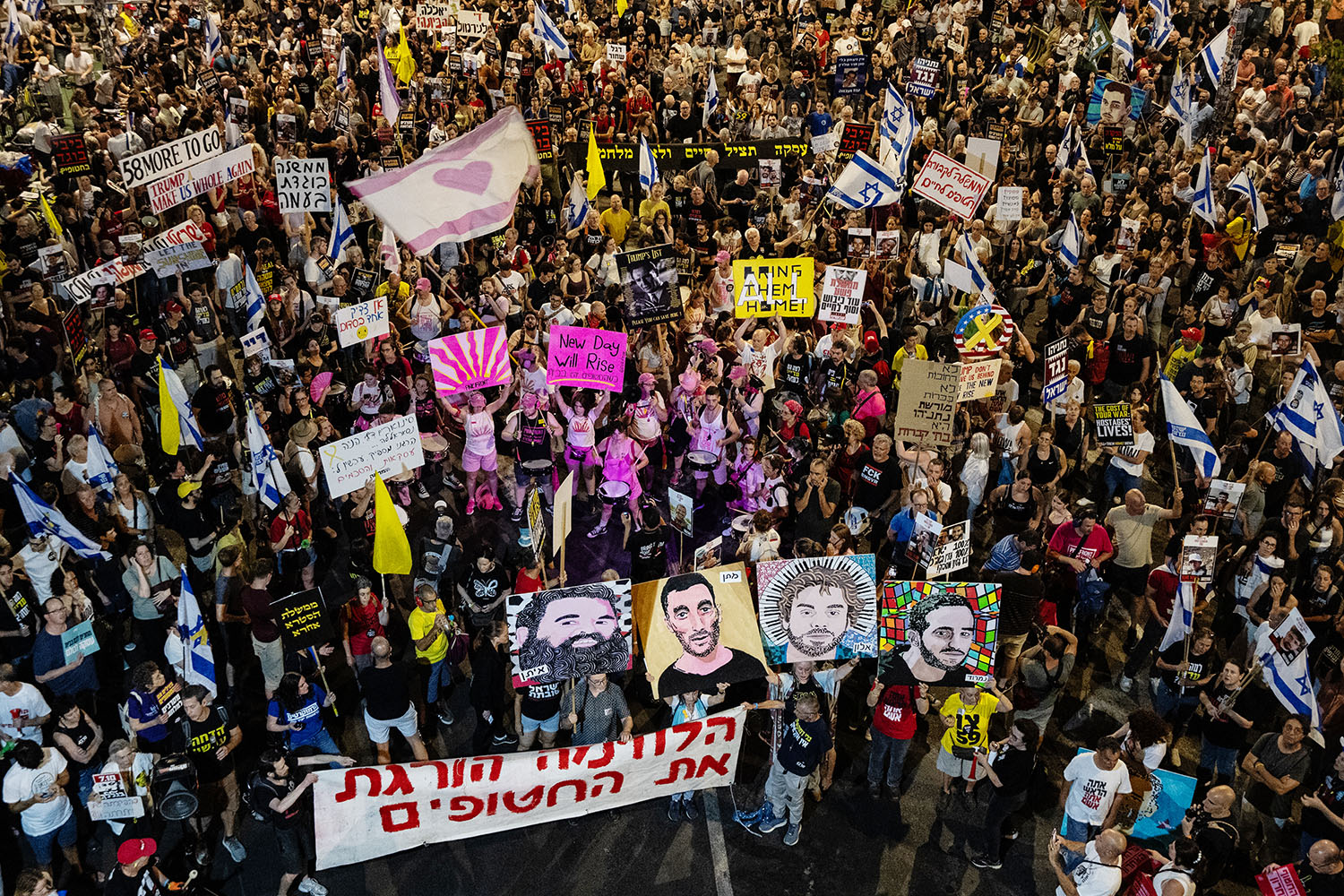Civic organisations working in Israel opposing the ground offensive in Gaza and the forcible displacement of Palestinians face what has been described as a “death blow” from a proposed 80% tax on their foreign income.
Senior figures in the Jewish community in the UK are concerned the Israeli government is trying to silence civic organisations with the planned tax as it launches an intense new ground offensive in Gaza.
Peace campaigners warn this weekend the move reflects a wider move to a more authoritarian government.
Unrwa, the UN agency for Palestinian refugees, says tens of thousands of civilians have been killed and injured since the collapse of the ceasefire in March.
Sharone Lifschitz, a London-based film-maker and academic, whose father Oded, 84, was abducted on 7 October and killed in captivity, said the tax would threaten the viability of Israeli-based peace organisations.
“This would be a death blow to so many activities,” she said. “The UK and the EU should be absolutely clear that if this goes ahead there will be reciprocal steps taken against Israel.”
Lifschitz said she considered the Israeli prime minister Benjamin Netanyahu the country’s worst ever prime minister. “He is ready to commit atrocities that Israel will pay for for a long time,” she said.
Netanyahu last week accused the leaders of the UK, France and Canada of being on the “wrong side of history” after they warned the escalation in Gaza was “wholly disproportionate”. Keir Starmer, Emmanuel Macron and Mark Carney said a permanent forced displacement of population was a breach of international humanitarian law and the limited aid allowed into Gaza was “wholly inadequate”.
There is growing concern among British Jewish communities at the actions of the Israeli government. Yotam Ottolenghi, the Israel-born chef, posted on Instagram last week that he was “heartbroken” by the conflict. “The use of food, or withholding it, as a tool in conflict is something I cannot stay quiet about,” he wrote.
“No person, no child, should go hungry as a result of war.”
Newsletters
Choose the newsletters you want to receive
View more
For information about how The Observer protects your data, read our Privacy Policy
Arabella Duffield, a trustee of the Clore Israel Foundation, a grant-giving organisation, wrote in the Financial Times last week that the Israeli government was “endangering what’s left of its moral authority”.
Hannah Weisfeld, executive director of Yachad, a British Jewish organisation with a mission to support a political resolution to the conflict, said the proposal to impose a 80% tax on foreign income on civic organisations was designed to cut off funding. She said: “The worry is being in a situation like in Russia where a lot of human rights organisations can’t physically be on the ground.”
One of the organisations that would be hit by the punitive tax would be Yesh Din, an Israeli NGO established in 2005 to protect the human rights of Palestinians living under Israeli armed forces. It relies on funds from foreign organisations.
The Israeli parliament started deliberations on the bill earlier this month. The bill includes an 80% tax on any foreign donation to an Israeli NGO. Any organisation with funding from the Israeli state would be exempted. The Israeli government has been contacted for comment.
Photograph by Mostafa Alkharouf/Anadolu via Getty Images

